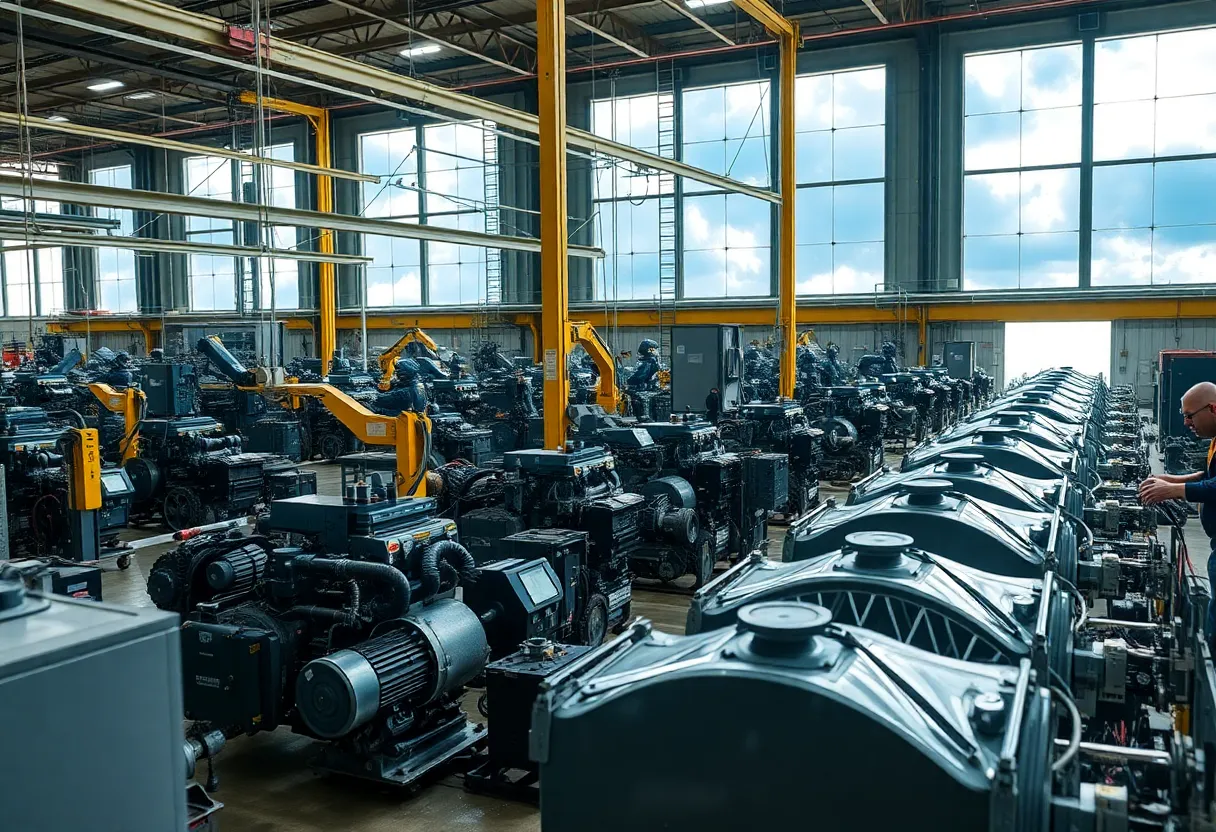News Summary
Pennsylvania’s manufacturing sector is under strain due to anticipated rainy weather and regulatory hurdles. Leaders Trump and Shapiro stress the need for a manufacturing surge, while existing regulations pose significant obstacles. Several companies are reconsidering their investments in Pennsylvania due to its overregulated environment, with potential implications for job creation and economic growth. Proposed reforms aim to alleviate these burdens, but progress remains slow, highlighting the urgency for comprehensive change to ensure Pennsylvania’s competitive standing in the manufacturing industry.
Pennsylvania is currently facing challenges in its manufacturing sector, with cloudy weather and rain anticipated to start midday. Along with the possibility of thunderstorms, rain is expected to ease back to scattered showers by the evening. Amid this backdrop, President Donald Trump and Governor Josh Shapiro emphasize the urgent need for a manufacturing boom in the state.
Both leaders have acknowledged that reducing regulatory burdens is vital for fostering manufacturing growth. Trump’s administration has embarked on a mission to incentivize manufacturers by cutting red tape, committing to repeal ten federal mandates for every new regulation introduced. This move aims to enhance manufacturing investments across the United States, with Pennsylvania poised to leverage its potential as a leading hub in the plastics sector due to its status as a significant oil and gas producer.
Despite the favorable conditions, Shapiro’s actions thus far have not resulted in substantial reforms to eliminate barriers hindering the establishment of new factories and high-paying jobs. Overregulation is cited as a primary obstacle in this regard, with Pennsylvania ranking as the 14th most regulated state in the country, burdened by over 164,000 regulatory restrictions.
The state’s permitting system has been characterized as broken, leading to delays in major projects and inflated costs. This environment has resulted in numerous companies reassessing their plans, with some opting for states with more favorable regulations. For example, a Texas company recently canceled plans for the largest plastics factory in the U.S. near Harrisburg, and FairLife decided to construct a milk-processing plant in New York instead of Pennsylvania. U.S. Steel is also considering expanding in other states, citing concerns over affordability.
The plastics industry has expressed a desire to make Pennsylvania a manufacturing hub, particularly to support crucial sectors like aerospace and electronics. However, with more than $10 billion in investments from natural gas companies aimed at new plants across the U.S., Pennsylvania has yet to capture a share of these developments.
Research indicates that if the state could reduce its regulatory burdens by just one-third, it could usher in significant economic growth and job creation. At present, Governor Shapiro has emphasized press conferences and selective economic programs rather than addressing the broader need for comprehensive regulatory reform.
While the state Senate has passed several bills aimed at regulatory reform, these efforts have stalled in the House due to resistance from Democratic opposition. Shapiro’s Fast Track program, which offers selective approvals for high-impact projects, has not tackled the expansive regulatory challenges facing the manufacturing sector.
Proposed measures like the TRAP Act and the REINS Act have been introduced, seeking to alleviate regulatory pressures by targeting the review and approval processes for significant regulations. There is a growing consensus that Pennsylvania must pursue substantial manufacturing growth to attract investment and employment opportunities.
The combined efforts of Trump’s administration and Shapiro’s commitment to reduce regulatory barriers could potentially reshape Pennsylvania’s manufacturing landscape. The call for cooperative action across political lines is emphasized as a pathway to recognize the shared goal of enhancing Pennsylvania’s manufacturing capabilities, ensuring it remains competitive in an evolving global economy.
For Pennsylvania to realize its potential in manufacturing, addressing overregulation will be critical. A united approach involving state and federal leadership appears necessary to create a more conducive business environment that could lead to job creation and economic revitalization.
Deeper Dive: News & Info About This Topic
- Bloomberg: Made in USA Wheelbarrows
- Wikipedia: Manufacturing in the United States
- Reason: Trump’s Tariffs Killing Jobs
- Google Search: Trump tariffs
- WFMZ: Trump Announces Tariffs
- Google Scholar: Pennsylvania manufacturing
- NBC Philadelphia: Trump Threatens John Deere
- Encyclopedia Britannica: Manufacturing
- Delaware Valley Journal: U.S. Steel and Nippon Steel Deal
- Google News: Pennsylvania tariffs

Author: STAFF HERE PHILADELPHIA WRITER
The PHILADELPHIA STAFF WRITER represents the experienced team at HEREPhiladelphia.com, your go-to source for actionable local news and information in Philadelphia, Philadelphia County, and beyond. Specializing in "news you can use," we cover essential topics like product reviews for personal and business needs, local business directories, politics, real estate trends, neighborhood insights, and state news affecting the area—with deep expertise drawn from years of dedicated reporting and strong community input, including local press releases and business updates. We deliver top reporting on high-value events such as Mummers Parade, Philadelphia Flower Show, and Thanksgiving Day Parade. Our coverage extends to key organizations like the Greater Philadelphia Chamber of Commerce and United Way of Greater Philadelphia, plus leading businesses in telecommunications, food services, and healthcare that power the local economy such as Comcast, Aramark, and Children's Hospital of Philadelphia. As part of the broader HERE network, we provide comprehensive, credible insights into Pennsylvania's dynamic landscape.





